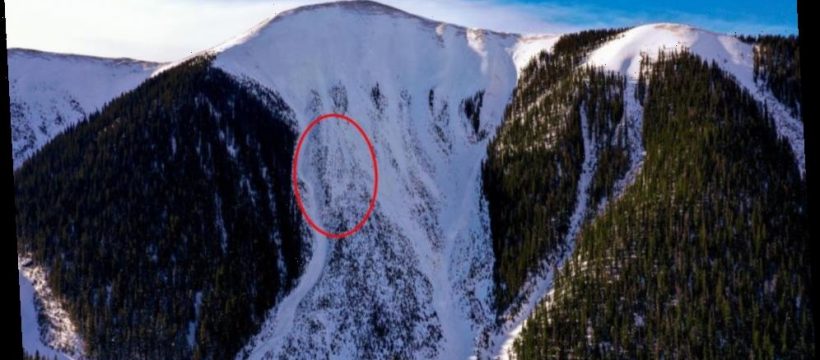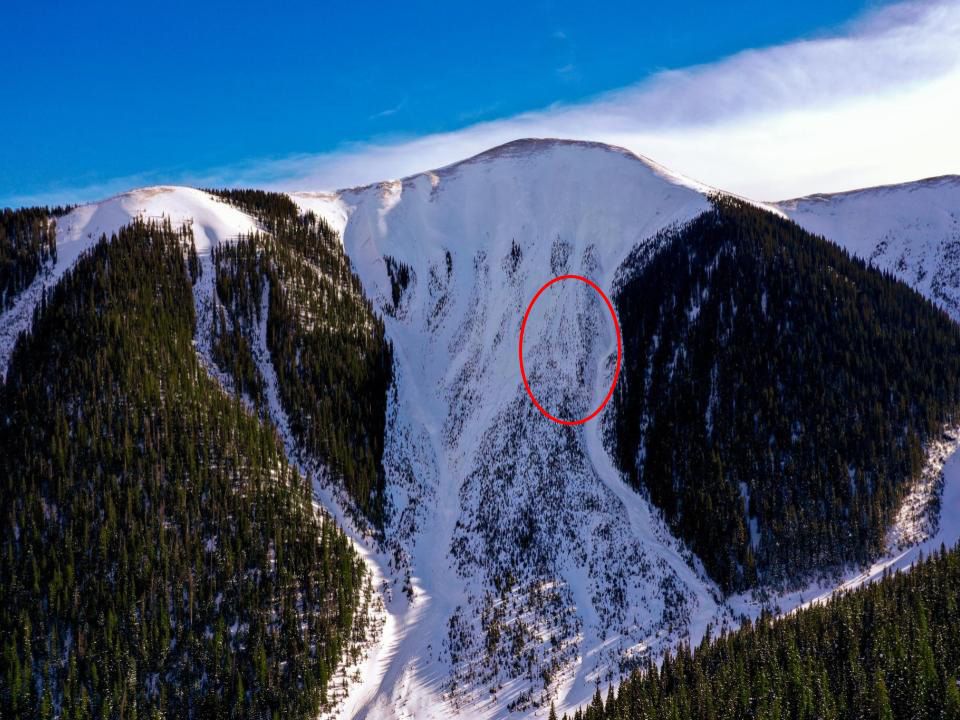Officials are urging skiers to pay attention to forecasts after a series of avalanches killed three skiers in Colorado this weekend.
On Sunday, San Juan County Search and Rescue recovered the bodies of two skiers who were buried by the snow near Ophir Pass after they were caught in an avalanche, according to a report from the Colorado Avalanche Information Center (CAIC).
The skiers, who authorities identified as Albert Perry, 55, and Dr. Jeff Paffendorf, 51, both of Durango, were reported overdue on Saturday after having planned to ski in an area known as the Battleship.
"In the dark from a helicopter, rescuers could see a large avalanche and ski tracks. The two skiers were later found buried in the avalanche debris," the report read.
On Friday, another skier was killed in an avalanche on the northeast end of the Anthracite Range in an area known as Friendly Finish, the CAIC reported.
Prior to heading down the mountain, the skier spoke with another group of two skiers about their respective descent plans.
When the two skiers returned to their parked snowmobile, they saw the solo skier's snowmobile still there, and were trying to find him when they discovered a fresh avalanche, according to the report.
"They extricated Skier 1, but he tragically did not survive the event. Local volunteers and Crested Butte Search and Rescue facilitated the recovery and extrication," the CAIC wrote.
Ethan Greene, director of the CAIC, told CNN that this has not been a "normal year" for avalanches and there have been "unusual conditions" causing the snowslides.
"A lot of avalanches were triggered by people this week. More people die in avalanches in Colorado than any other state and this year has been especially dangerous," he said.
Most of the zones in the mountains of Colorado's backcountry are marked "considerably dangerous," according to CNN.
Greene told the Associated Press Sunday that there have been 132 avalanches reported since Friday. He also noted that Colorado's snowpack is the weakest it has been in nearly nine years.
"People need to recognize we have unusual conditions and their usual practices may not keep them out of harm’s way," he said. "As we gain more snow in the coming weeks, avalanches could become even more dangerous."
Source: Read Full Article

